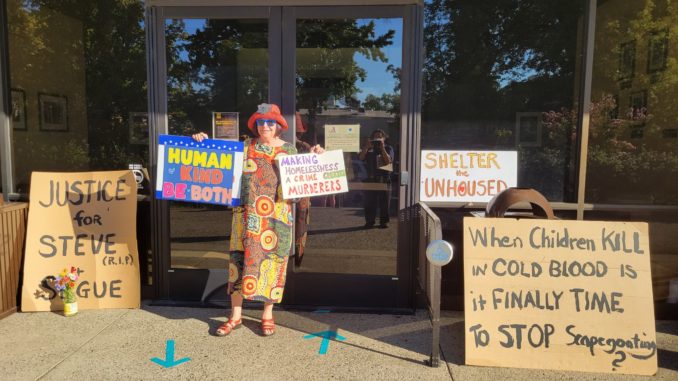
“Why are we living in two different worlds?”
That question, in a public comment from Jesica Giannola, encapsulated the overriding narrative of the Chico City Council meeting Tuesday night (Sept. 7), in which a consent-agenda item about accounting expanded to the city’s most pressing concern.
The matter that moment was an outdoor ice skating rink downtown—specifically, City Plaza. In June, when approving the fiscal year 2021-22 budget, the City Council earmarked $300,000 for the project. Tuesday night, city staff asked the council to allow a new account, called City Recreation Fund, to incorporate the operations as well as establishment of the rink.
Discussion went beyond this financial procedure to the propriety of the project altogether. Giannola summed up the sentiments of several speakers in calling the rink “not appropriate—a slap in the face to our needs now.”
Noting that the city has “a housing crisis,” she added: “An ice rink sounds like fun … it isn’t part of our reality now.”
That she spoke minutes after a demonstration outside City Council chambers — during which approximately 60 people held a vigil for Guy Steven VanZant, who was murdered Sept. 4 at the Teichert Ponds homeless encampment— underscored her message.
Giannola and others, including Planning Commissioner Bryce Goldstein, also pointed to the ice rink in Paradise, an annual tradition revived by the Paradise Recreation and Parks District (PRPD) amid the Ridge’s recovery from the Camp Fire. Goldstein suggested reallocating the funding to a shuttle to the Paradise rink and to more pressing community needs such as roads and housing options.
Ultimately, the council decided to reconsider the ice rink—but not entirely nor exactly for reasons mentioned by the public. Council members instructed Brendan Ottoboni, the city’s public works director for engineering, to bring to the next meeting (Sept. 21) details of contracts already executed for the rink, so the council can see whether any funding is irretrievably committed. Additionally, Ottoboni will clarify the financials as well as the environmental impacts of the rink regarding energy and water usage.
The motion, made by Councilman Sean Morgan, passed unanimously after Mayor Andrew Coolidge put aside objections he’d initially voiced: “I support my other council members; I see the writing on the wall.”
Morgan’s biggest hesitation is timing. With uncertainty surrounding COVID-19 and public perception of safety in the plaza, he expressed concern that the eight-week venture, under the auspices of the Downtown Chico Business Association, would draw ample attendance this year.
“I think it would be a really cool thing for downtown Chico—Paradise not withstanding,” Morgan told the CN&R afterward. “However, there’s a variety of unknowns … so we spend all this money and get none of the possible economic benefit, or the feel-good, or any of those stories.
“I just think people are ready to see something positive come out of the city. We’re not seeing it because of the injunction [in the Warren v. Chico federal lawsuit over the city’s response to homelessness], I believe. There’s a lot of negative going on in everybody’s life. That’s why I believe this would be great, would be fun, would be good—but it would be even worse if it fails due to circumstances out of our control, so I’m just asking [to reconsider].
“But the contracts have been signed, so it might not matter. But maybe it might be wise to put this off a year? That was my question.”
Another question rose over the amount for the temporary rink. The allocation line read $1.3 million versus $300,000; Ottoboni explained that the rink will cost around $400,000 a year to operate, which admission charges and sponsorships should offset.
Ottoboni told the council (and the CN&R afterward) that staff had not contacted Paradise about its plans—which PRPD District Manager Dan Efseaff, a former Chico parks and resources manager, confirmed to the CN&R by email Tuesday.
“I thought it a little puzzling for Chico to take on a new endeavor when it’s been associated for so long with good things in Paradise,” Efseaff said. “I was also surprised that the City would take on the expense of it, when there are so many things in disrepair in Bidwell Park and other City of Chico facilities. I also thought someone might have reached out to us to coordinate or to find out how to minimize the impacts to Paradise and the Ridge but [they] did not.”
Ottoboni told the council that staff heard Paradise might not open its rink this winter—which was echoed by Coolidge, citing conversations with his mayoral counterpart in Paradise, Steve Crowder. Efseaff said PRPD’s plans, approved at its July 14 meeting, are set: “The rink will open at the Terry Ashe Recreation Center [on] Veteran’s Day and closes over the MLK holiday weekend. We’ve hired the crew to run it already, and it brings jobs to those families and business to the Ridge. Our facility is beautiful right now.”
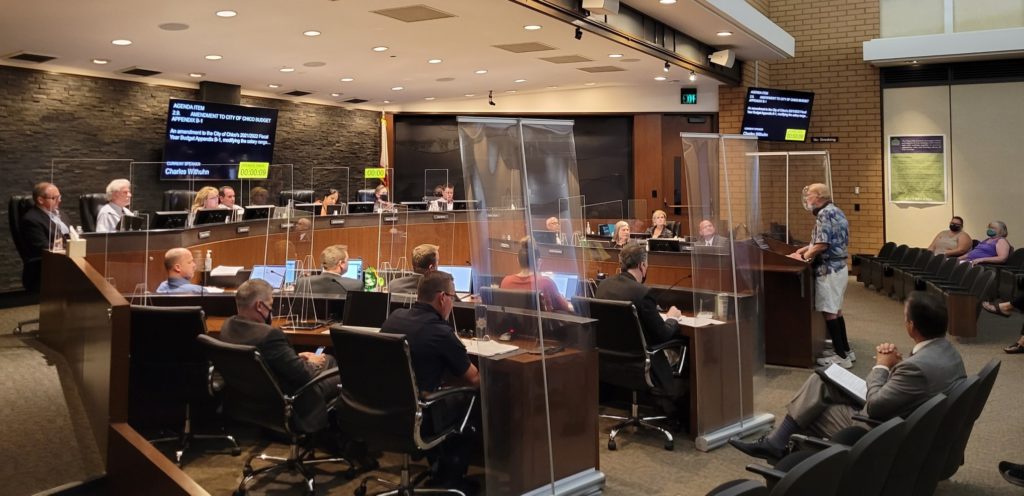
Ottoboni and City Manager Mark Orme told the CN&R that an ice rink is not unique to Paradise and that the venture is about Chico, not its neighbors.
“It was an idea that got brought up, got bought into and is a decision that was moving ahead,” Orme said. “Now we’re going to wait a couple weeks, look into some things as council asked us to, but the decision won’t change based upon whether they do it or not [in Paradise]. Same would be true for Anderson, same would be true in any of these other cities considering doing it.
“We do know our downtown could use a kick and a new vibe, and that could do it.”
Other items
Housing and homelessness permeated other parts of the meeting. On a 4-3 vote—with Councilwoman Deepika Tandon and Vice Mayor Kasey Reynolds joining the lone progressive, on the panel, Councilwoman Alex Brown, in dissent—the council gave final approval to what City Attorney Vince Ewing labeled a “clean-up ordinance” amending the city’s regulations for camping and storing personal possessions on public property.
Van Zandt’s murder and the plight of homeless Chicoans came up repeatedly during the open comment period, with all 13 speakers addressing the impacts of the housing crisis in some way: on unhoused individuals, on businesses, on the community, on themselves.
In the final action of the meeting, Morgan made a motion—approved 6-1, with Brown dissenting—for the council to agendize at a future meeting a report by the local engineering firm NorthStar about how the Greenline could be adjusted in north Chico to allow for more housing without compromising agriculture.
“They have a tentative map that would add some apartment buildings—not necessarily low-income housing, but more housing supply, which drives the price down—in exchange for a different area of the Greenline in a different place that’s actually being used for ag versus one that isn’t,” Morgan told the CN&R. “It makes a lot of sense; the problem is every time you bring up the Greenline, people go, ‘Oh, you can’t do that!’ But people on both sides of the Greenline in the area they’ve showed me have gone, ‘Gosh, this just makes sense.’ … [If it makes] sense without hurting ag, protect our economic driver, let’s look at it. That’s all we’re doing, just a report.
“I expect people are going to freak out for no big reason. It’s Chico.”
In other decisions, the council voted 6-1 (Brown dissenting) to allocate $500,000 in American Rescue Plan funds to repair a bike path along the railroad tracks from Chico State to West Lindo Avenue ($350,000) and for up to three established youth programs ($150,000 total); and made appointments to three city boards/commissions.

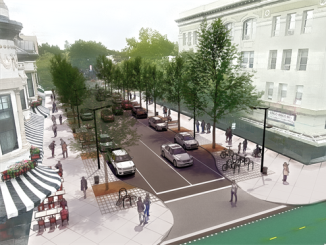
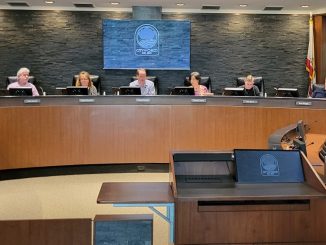
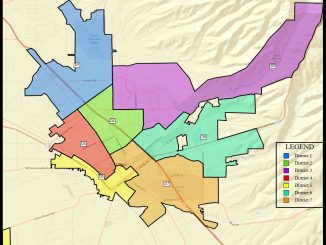
Be the first to comment